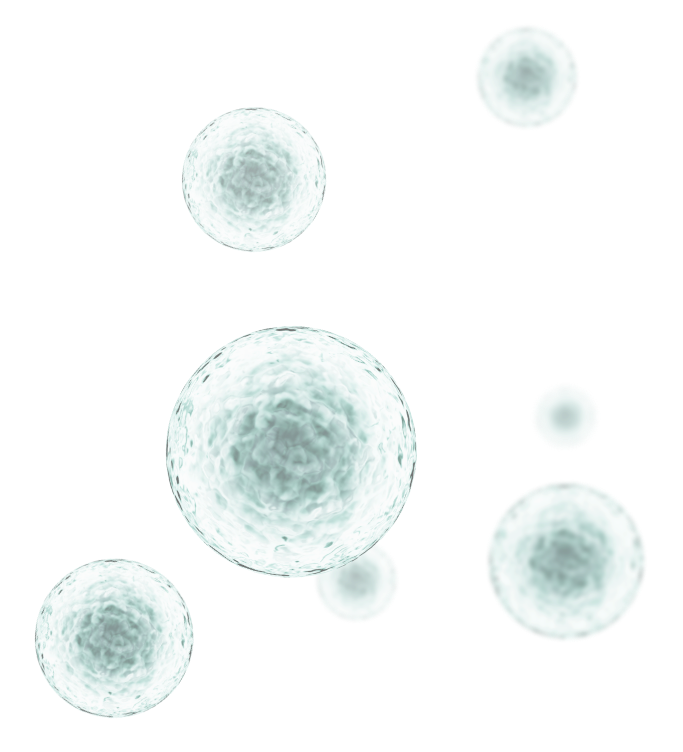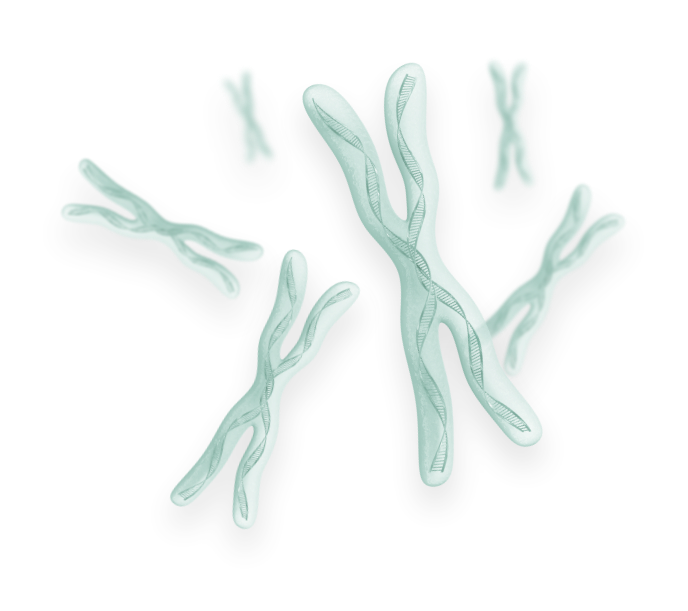Reducing the risk of inherited disease
Reducing the risk of inherited disease
A small number of cells are sampled from embryos, produced using IVF technology, and analysed to predict whether a specific defective gene has been inherited. Juno typically combines more than one advanced method in order to provide highly accurate results.
Most tests are custom designed for individual patients, taking into account their unique genetics. The majority of chromosome abnormalities, responsible for most cases of miscarriage and problems such as Down syndrome, are also detected at no extra cost.
Karyomapping looks at thousands of SNPs on each chromosome. These variations in the DNA are passed on from parents to their embryos. Each copy of a gene is associated with a characteristic group of SNPs, which can be thought of as being like a unique DNA fingerprint for that copy. Juno compares the SNPs in different members of the same family in order to define the pattern of SNPs associated with a mutant gene and the SNP fingerprint that accompanies the normal copy of the gene. Analysis of these patterns in embryo samples allows Juno’s scientists to predict whether the embryo is affected by the inherited condition for which PGT-M was requested.
Autosomal recessive diseases:
‘In this case having only one copy of the altered gene does not mean a person has the disease, just that they are a carrier. To have the condition, both the maternal and paternal copies of the gene must be defective. For recessive disorders, 25% of the offspring will be healthy, 50% will be healthy-carriers and 25% will have the disease.

PGT[M]Seq is for couples who are known to be at risk of transmitting a monogenic disease and wish to reduce the chances of having an affected pregnancy.
In order to design a new PGT[M]Seq method, it is important that the defective gene causing the inherited disorder has been identified and the mutation in the gene has been characterized.


PGT[M]Seq is for couples who are known to be at risk of transmitting a monogenic disease and wish to reduce the chances of having an affected pregnancy.
In order to design a new PGT[M]Seq method, it is important that the defective gene causing the inherited disorder has been identified and the mutation in the gene has been characterized.

The development of a new PGT-M test usually requires 6 weeks starting from the date that Juno receives all of the necessary DNA samples and paperwork, but can take up to 8 weeks in some cases. Once Juno has confirmed that the test is ready, the IVF cycle can begin. The embryos produced can be biopsied and the specimens sent to Juno. PGT[M]Seq results are generally available 9 days after Juno receives the embryo biopsy samples (although can take up to 14 days).
We aim to make working with Juno Genetics as easy as possible. Juno is committed to supporting the clinics it works with, providing guidance at all stages of the PGT process. We are available seven days a week to assist with queries or to provide advice. At Juno we appreciate that different clinics may have unique needs and our policy is one of flexibility, where we adapt to the specific requirements of each clinic. If your clinic already offers PGT in collaboration with another genetics laboratory, then it is likely that very few significant changes, if any, will be necessary. Please contact Juno Genetics and we will be happy to walk you through the enrolment procedure, provide all necessary documentation and answer any questions you might have. If your clinic is new to PGT, Juno can help by providing valuable information and documentation to get you started. Juno can also assist with training and evaluation of procedures, making sure that all elements of the PGT procedure are optimised and working well, prior to the launch of a clinical service. Please contact supportuk@junogenetics.com to begin working with Juno.
If the proportion of samples that fail to give a PGT result is consistently higher than expected, this is almost always due to a problem with technique used for the cell washing and loading or, less commonly, with the embryo biopsy method. Scientists at Juno Genetics have decades of experience working with clinics in order to achieve optimal PGT results and can assist with troubleshooting. Problems are almost always solved after simple and easy to implement changes to procedure.
